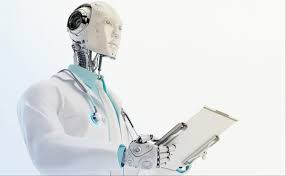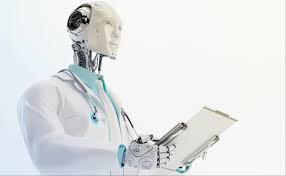
In May this year, Google published the ordeal of an unnamed woman suffering from breast cancer whose possible time of death during her stay at a hospital was much better predicted by a new type of algorithm created by the company that studied 175,639 health data points to arrive at the conclusion of death risk.
The company is now working with the health-care potential of neural networks which is a type of artificial intelligence software which is able to automatically learn and improve with the use of data reading and analysis. Using this, Google has developed a tool that is able to estimate a host of patient outcomes which includes the length of hospital stay, the chances of re-admission and the chances of death in the short term.
Data such as notes buried in PDFs or scribbled on old charts cab be easily read by this new tool and this is the mots impressive aspect of the tool for medical experts. All of these data were used by the neural net to arrive at its conclusions very fast and more accurately compared to existing techniques.
It has been an uphill task for hospitals, doctors and other health-care providers to read and accurately analyze stockpiles of electronic health records and other patient data. at the most lives can be saved by greater sharing and highlighting of patient information at the right time and at the least save time expended for paperwork for healthcare workers. However, the existing techniques is costly and time consuming.
Nigam Shah, an associate professor at Stanford University, who co-authored Google’s research paper, published in the journal Nature says that about 80% of the time that is expended in the current predictive models is spent in designing the work in a presentable manner. Google’s tool helps to reduce this. “You can throw in the kitchen sink and not have to worry about it,” Shah said.
AI chief of Google, Jeff Dean, had told the media in May that the company now plans to move this predictive system into clinics. A number of AI tools is now being worked upon by Dean’s health research unit which is also called Medical Brain to enable the development of a predict system of symptoms and disease to a great degree of accuracy.
Google has the chance of breaking into a completely new market niche because of the work that is being done by the Medical Brain team.
Currently hand is the prevalent practice for software in health care. In comparison, Google’s approach is entirely different where it uses machines to learn to parse data on their own and it “can just leapfrog everything else,” says VikBajaj, a former executive at Verily, an Alphabethealth-carearm. “They understand what problems are worth solving,” he said. “They’ve now done enough small experiments to know exactly what the fruitful directions are.”
However, there are also sizable challenges to Google’s optimism over the potential of taking advantage of AI for enhancement of health-care outcomes. Amongst the biggest challenges are saving money and integration of the technology into existing reimbursement systems which have been faced by some other firms that attempted to venture into this niche such as IBM’s Watson unit.
(Source:www.hindustantimes.com)
The company is now working with the health-care potential of neural networks which is a type of artificial intelligence software which is able to automatically learn and improve with the use of data reading and analysis. Using this, Google has developed a tool that is able to estimate a host of patient outcomes which includes the length of hospital stay, the chances of re-admission and the chances of death in the short term.
Data such as notes buried in PDFs or scribbled on old charts cab be easily read by this new tool and this is the mots impressive aspect of the tool for medical experts. All of these data were used by the neural net to arrive at its conclusions very fast and more accurately compared to existing techniques.
It has been an uphill task for hospitals, doctors and other health-care providers to read and accurately analyze stockpiles of electronic health records and other patient data. at the most lives can be saved by greater sharing and highlighting of patient information at the right time and at the least save time expended for paperwork for healthcare workers. However, the existing techniques is costly and time consuming.
Nigam Shah, an associate professor at Stanford University, who co-authored Google’s research paper, published in the journal Nature says that about 80% of the time that is expended in the current predictive models is spent in designing the work in a presentable manner. Google’s tool helps to reduce this. “You can throw in the kitchen sink and not have to worry about it,” Shah said.
AI chief of Google, Jeff Dean, had told the media in May that the company now plans to move this predictive system into clinics. A number of AI tools is now being worked upon by Dean’s health research unit which is also called Medical Brain to enable the development of a predict system of symptoms and disease to a great degree of accuracy.
Google has the chance of breaking into a completely new market niche because of the work that is being done by the Medical Brain team.
Currently hand is the prevalent practice for software in health care. In comparison, Google’s approach is entirely different where it uses machines to learn to parse data on their own and it “can just leapfrog everything else,” says VikBajaj, a former executive at Verily, an Alphabethealth-carearm. “They understand what problems are worth solving,” he said. “They’ve now done enough small experiments to know exactly what the fruitful directions are.”
However, there are also sizable challenges to Google’s optimism over the potential of taking advantage of AI for enhancement of health-care outcomes. Amongst the biggest challenges are saving money and integration of the technology into existing reimbursement systems which have been faced by some other firms that attempted to venture into this niche such as IBM’s Watson unit.
(Source:www.hindustantimes.com)





